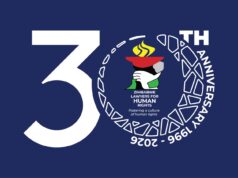A HUMAN rights lawyer has taken action against City of Harare (CoH) by asking the local authority to immediately restore the dignity of residents when using public toilets in the capital city.
Acting in the public interest, Roselyn Hanzi, a resident of Harare, who is also the Executive Director of Zimbabwe Lawyers for Human Rights (ZLHR), wrote a letter of demand to CoH on Wednesday 25 September 2024, protesting against the poor state of public toilets in the capital city, which amounts to a violation of residents’ right to human dignity as guaranteed under section 51 of the Constitution, the right not to be treated in an inhuman and degrading manner provided under section 53 of Constitution and the right to a healthy environment guaranteed under section 73(1) (a) of the Constitution.
In the letter written to CoH by Hanzi’s lawyer Tinashe Chinopfukutwa of ZLHR, the human rights lawyer, who has been consistently paying her rates to the local authority, said she had noted with alarm some media reports about the poor state and conditions of use of public toilets in the capital city.
Hanzi protested against the conduct of some CoH employees who man the public toilets located at some bus terminuses, who demand that members of the public who wish to use these public toilets should produce a roll of toilet paper and if they do not have one, they are forced to pay the CoH employee a tissue “fee” of US$0.50.
Members of the public who do not have the tissues or cannot pay the US $0.50, Hanzi said, are turned away and this has been widely reported in newspapers particularly by Newsday newspaper in its edition published on 7 September 2024.
Hanzi said at the Charge Office bus terminus public toilet, upon gaining entry into the female public toilet, women are advised that the toilet should only be used for urinating purposes and not for defecating and the CoH Toilet Inspector regularly reminds women using the toilet that the toilet is for urine only and berates some women for taking too much time in the toilet.
The public toilets, the human rights lawyer said, also do not have functional flashing systems and sewer systems and hence the CoH Toilet Inspector’s constant reminders that the toilets are for urinating only while the public toilets themselves utilise a bucket system in which a bucket is used to flash the toilets as there is inadequate water supply to the toilets. Furthermore, the toilets do not have doors to afford the users of the toilets some privacy, said Hanzi.
Hanzi said the toilet rooms are also filled with used toilet tissue paper lying on the floor owing to the non-functionality of the sewer system, which cannot cope with the volume of tissue waste and due to the lack of adequate water supply to the public toilets, members of the public, who would have used them cannot wash their hands.
The human rights lawyer said because of the poor state and conditions of the public toilets in Harare, women who rely on and are supposed to utilise the said public toilets are exposed to highly inhumane conditions which strip them of their basic human dignity thereby violating her right and those of other residents’ right to human dignity as guaranteed under section 51 of the Constitution and also amount to inhuman and degrading treatment, thereby violating residents’ right not to be subjected to inhuman and degrading treatment as protected under section 53 of the Constitution.
Hanzi protested against the levying of US $0.50 for tissue paper or the insistence by CoH employees on production of toilet paper in order for members of the public to be allowed access to the toilets, which are basic amenities and pre-requisites for a dignified human existence, as a breach of her right and other residents’ right to dignity and the right not to be subjected to inhuman and degrading treatment.
The ZLHR Executive Director stated that in terms of section 22 of the Second Schedule to the Urban Councils Act, CoH has a legal obligation to provide public toilets in areas under its jurisdiction and the current conditions and state of the public toilets in question irrefutably demonstrate that the local authority breached that legal duty reposed on it by statute, notwithstanding its collection of rates for sewer from Hanzi and other residents.
Hanzi said the current conditions and poor state of public toilets in Harare put her and other residents at the risk of contracting diseases such as cholera and typhoid and violates her right and other residents’ right to a healthy environment as guaranteed in section 73(1)(a) of the Constitution.
CoH, Hanzi charged, has also breached its obligation to take the necessary steps to ensure the progressive realisation of her rights and other residents’ right to a healthy environment by progressively and reasonably maintaining the public toilets in question.
The human rights lawyer implored CoH to immediately attend to repairing, installing, and or fixing the flushing, sewer, and water systems of the public toilets within the Greater Harare area and to immediately ensure that the local authorities’ employees cease, forthwith, the practice of demanding the production of tissues or payment of a “tissue fee” from members of the public and also repair and install toilet doors in all the public toilets in the Greater Harare area.
Hanzi warned CoH that she will institute legal proceedings against the local authority in the event that it does not comply with her demands and the costs of such litigation would be borne by the local authority.
ENDS
Zimbabwe Lawyers for Human Rights
Kodzero/Amalungelo House
No. 103 Sam Nujoma Street, Harare, Zimbabwe
Phone: (+263 8677005347, +263 242 764085/705370/708118
Email: info@zlhr.org
www.zlhr.org.zw
FOLLOW US:@ZLHRLAWYERS ON X| ZIMBABWE LAWYERS FOR HUMAN RIGHTS
ON FACEBOOK



